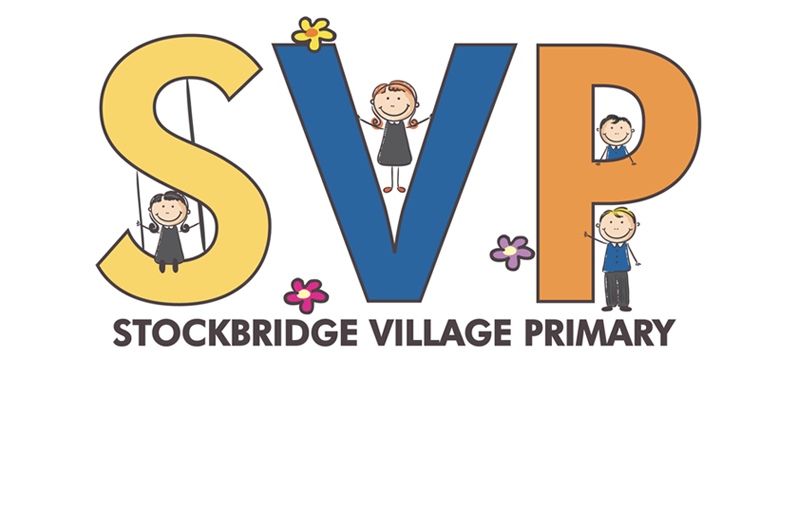Early Years – Nursery and Reception
Welcome to Early Years Foundation Stage (EYFS).
At Stockbridge Village Primary School, our Early Years Foundation Stage (EYFS) offers an exceptional start to education, welcoming children from the age of 3 in our nursery through to the end of their reception year. Our highly skilled and caring team deliver a balanced curriculum that nurtures curiosity, independence, and a love of learning across both nursery and reception. With purpose-built indoor and outdoor spaces, we create a stimulating environment tailored to every child’s developmental needs. Whether attending our 15-hour or 30-hour nursery provision, or progressing into reception, your child will thrive in our nurturing and inspiring setting.
EYFS Curriculum and Vision
Our curriculum offers a balanced blend of adult-led and child-initiated learning experiences, fostering interest and curiosity across all seven areas of learning. It is highly responsive to the needs of every child. By combining teacher input with continuous provision opportunities, our curriculum encourages children to develop their learning independently through exploration and challenge. It is designed to be progressive, ensuring that children’s knowledge and skills in all areas of learning are continuously built upon throughout the EYFS, effectively preparing them for Year 1.
The Characteristics of Effective Learning are part of the Early Years Foundation Stage (EYFS) framework, which focuses on how children learn rather than what they learn. These characteristics help educators understand and support children’s learning processes. There are three main characteristics:
- Playing and Exploring (Engagement)
- Finding out and exploring: Children use their senses to explore the world around them, showing curiosity and interest.
- Playing with what they know: Children engage in activities and play based on their own experiences, using objects and ideas they are familiar with.
- Being willing to ‘have a go’: Children show a willingness to take risks and try new things, even if they are unsure or might make mistakes.
- Active Learning (Motivation)
-
- Being involved and concentrating: Children focus on activities for extended periods, showing persistence even when they encounter difficulties.
- Keeping on trying: Children demonstrate resilience and determination, continuing to pursue their goals despite challenges.
- Enjoying achieving what they set out to do: Children gain satisfaction from meeting their goals and show pride in their accomplishments.
- Creating and Thinking Critically (Thinking)
-
- Having their own ideas: Children think of original ways to approach tasks and solve problems.
- Making links: Children connect ideas and experiences to form new concepts and understanding.
- Choosing ways to do things: Children plan, make decisions, and evaluate their actions and outcomes, adjusting their strategies as needed.
These characteristics guide practitioners in creating environments and experiences that support and extend children’s learning, ensuring they develop skills and attitudes that will help them throughout their education.
The “Characteristics of Effective Learning” are central to our curriculum, emphasising the diverse ways children learn. They underscore the significance of play and learning, active engagement, and critical thinking. Every learning experience we design allows children to utilise and enhance these skills. Our stimulating and exciting learning environments, both indoors and outdoors, are tailored to the needs and developmental stages of our children. These literacy-rich environments foster language comprehension and vocabulary building, and are easily accessible to promote children’s independence.
Our curriculum celebrates diversity and nurtures pupils’ spiritual, moral, social, and cultural development. Children with specific needs, including those with SEND, receive appropriate support to ensure their success. Our curriculum prepares all children effectively for the next stage in their learning journey.
The Early Learning Goals
During their time with us, children will gain an understanding of the Early Learning Goals (ELGs), which are standards outlined in the Early Years Foundation Stage (EYFS) framework. These goals define the expected learning and development outcomes by the end of the Reception year, when children turn five. The EYFS framework comprises 17 areas of learning and development, categorised into 7 areas, including three Prime Areas and four Specific Areas. These seven areas include:
Prime Areas:
- Communication and Language (listening, attention and understanding and speaking)
- Personal, social, emotional development (self regulation, managing self, building relationships
- Physical development (gross motor skills and fine motor skills)
Specific Areas:
- Literacy (comprehension, word reading and writing)
- Mathematics (number and numerical patterns)
- Understanding the World (past and present, people, culture and communities, and the natural world)
- Expressive Arts and Design (creating with materials, being imaginative and expressive)
Together, the Prime and Specific Areas encompass the knowledge, skills, and experiences that are developmentally appropriate for children from birth to 5 years.
